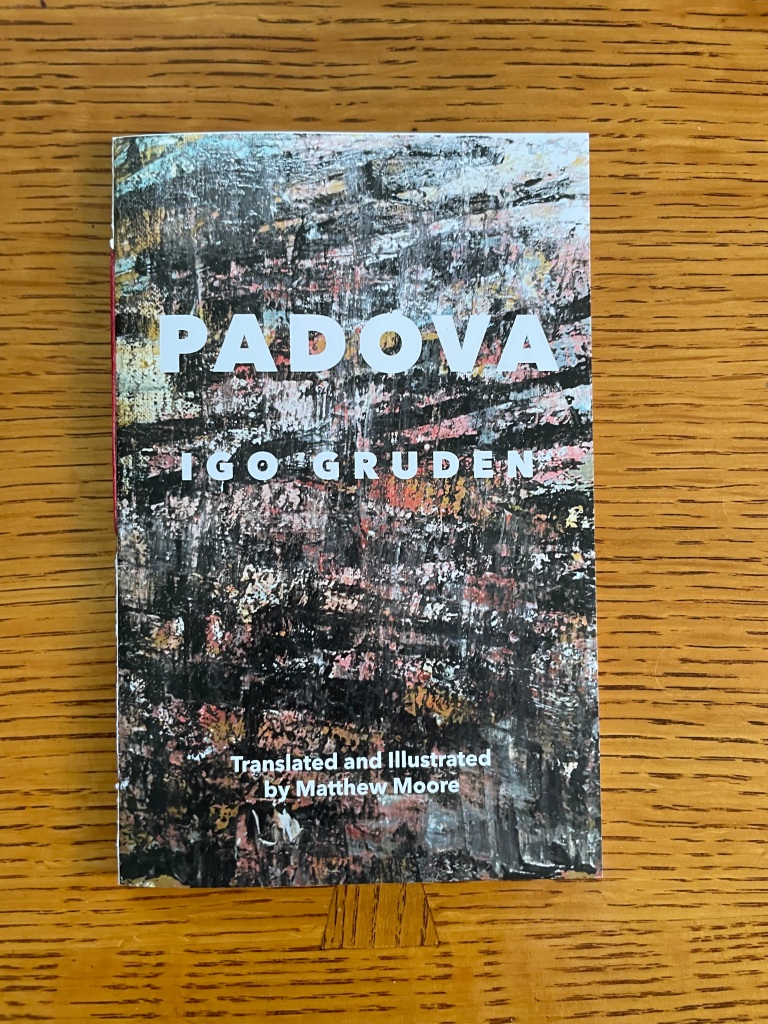
Igo Gruden (1893-1948) was born in Nabrežina in the Karst region, in the Kingdom of Italy, to a Slovene minority class, at the witching hour of Mediterranean ethnonationalism, on 18 April 1893. In Summer 1914, Gruden conscripted into the Lower Styrian 47th Regiment of the Austro-Hungarian Empire’s Common Army and mobilized to Maribor. November 1916: Gruden commanded a unit at the Ninth Battle of the Isonzo, where he was badly wounded by grenade shrapnel. The damage to his left side required years of medical treatment.
Gruden published personal poems and poems against Irrendentism and Fascist Italy in two collections, Narcissus and Littoral Poems, in 1920. He received a law doctorate in 1921 from Charles University in Prague, joining a firm in Ljubljana. In 1922, he was detained in the Karst region by Italian authorities for anti-Fascist writings, deported to Yugoslavia, and stripped of Italian citizenship. In the 1930s, Gruden traveled with Slovenian and Yugoslav PEN Clubs, and published the prize-winning poetry collection, The Twelfth Hour (1939). From 1930 to 1934, Gruden was married to Adela Hayne, a great-niece of poet Heinrich Heine; they had a daughter and eventually separated. From 1938 until his death, he was married to Pepca Zajc; they had three children.
In December 1942, the White Guard imprisoned Gruden, after several arrests and run-ins, for his anti-Fascist work as a trial lawyer defending members of the OF, the Slovene Anti-Fascist Liberation Front, during Italy’s occupation of Ljubljana. From 1942 to 1944, he survived portations and imprisonment at sites across the Mediterranean archipelago of Italian and Nazi concentration camps, including Chisinau, Visco, Padova, and Rab, where Gruden joined the OF. After the Rab concentration camp was abandoned amid Italy’s capitulation in autumn 1943, he and other prisoners formed a brigade to liberate prisoners on Rab and island camps along the Dalmatia coast. When news broke of the coming Nazi offensive in January 1944, Gruden fled Europe with the brigade to sanctuary in North Africa. He survived the twilight of the war amid refugee populations at El Amriya, Tolumbat, and El Shatt refugee camps across Egypt. In 1945, Gruden returned to Ljubljana. His poetry collections, In Exile, and, The Poet’s Heart, were published in 1946, for which he received the Prešeran Prize in 1947. Igo Gruden died on 29 November, 1948 in Ljubljan.
Matthew Moore is the translator of Tomaž Šalamun’s Opera Buffa (Black Ocean, 2022).
Printed in Milwaukee at Clark Graphics and hand bound in St. Francis by Adjunct Press in an edition of 50.
